Paris. The mere mention of the word instantly conjures up images of iconic landmarks like the Eiffel Tower, charming cobblestone streets, romantic boat rides along the Seine, and cafés where you sip espresso while watching chic Parisians go about their day. For many, Paris represents the pinnacle of elegance, culture, and beauty — the dream destination on every traveler’s bucket list.
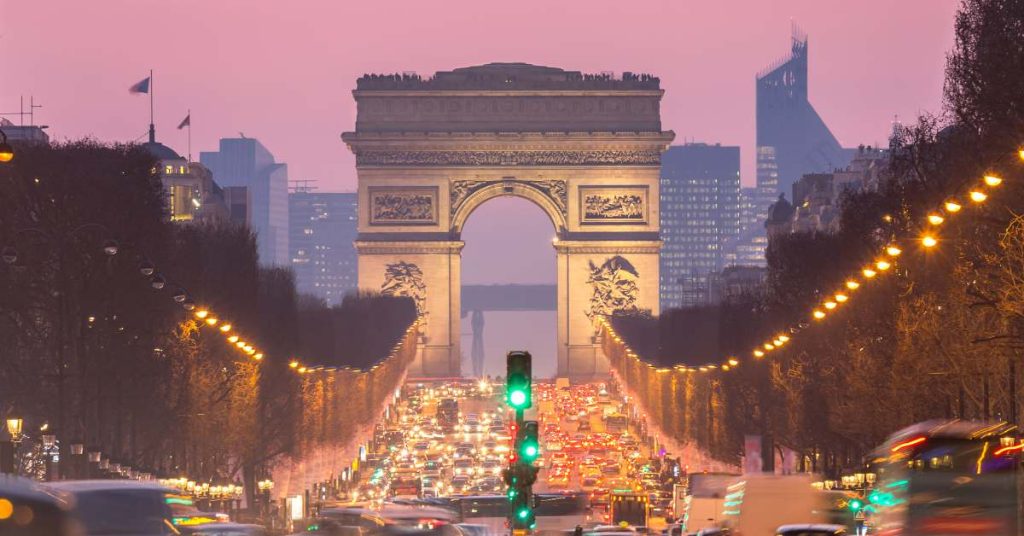
But here’s the thing: Paris is also a city that has its quirks, challenges, and realities that most glossy travel brochures won’t tell you about. If you arrive in the City of Light unprepared, you might find yourself overwhelmed, disappointed, or even a little frustrated. Because Paris, as magical as it is, is still a living, breathing metropolis — and like any big city, it has its good, its bad, and its downright confusing.
Before you book that flight and start fantasizing about leisurely strolls along the Champs-Élysées, there are some essential things you need to understand. Sure, Paris is beautiful, but it’s also bustling, sometimes chaotic, and filled with cultural nuances that can trip up even the most seasoned traveler. This isn’t to scare you off. Quite the opposite. By knowing what to expect and preparing for the real Paris, you’ll be able to enjoy your trip to the fullest, with fewer surprises and a much deeper appreciation for the city’s complexities.
So, whether it’s your first time visiting or your fifth, this article will guide you through the most important things to know before stepping foot in Paris. From mastering the Metro to embracing the slow pace of Parisian life, understanding these things will transform your trip from “good” to “absolutely unforgettable.”
Let’s dive in.
1. The Culture Shock
1.1. Parisians and Politeness
Let’s start with one of the biggest myths about Paris: Parisians are rude. This is a stereotype that’s been blown out of proportion, and in reality, most Parisians are kind and helpful. But there’s a catch: politeness in Paris (and France in general) follows a very specific set of unspoken rules that may differ greatly from what you’re used to in your home country.
In Paris, politeness begins with a simple word: “Bonjour.” Before asking for directions, ordering in a restaurant, or even starting a casual conversation, it’s essential to greet the person with a polite “Bonjour” (or “Bonsoir” in the evening). Failing to do so is considered rude and can immediately set a negative tone for the interaction. In France, acknowledging someone’s presence is a fundamental part of the culture, and it’s expected.
Beyond that, Parisians appreciate formality. Addressing someone as “Monsieur” or “Madame” shows respect, and even if your French is limited, these small gestures go a long way. So, while Parisians may not give you big smiles or bubbly greetings, their reserved manner is part of a culture that values formality and respect.
1.2. Dining Etiquette
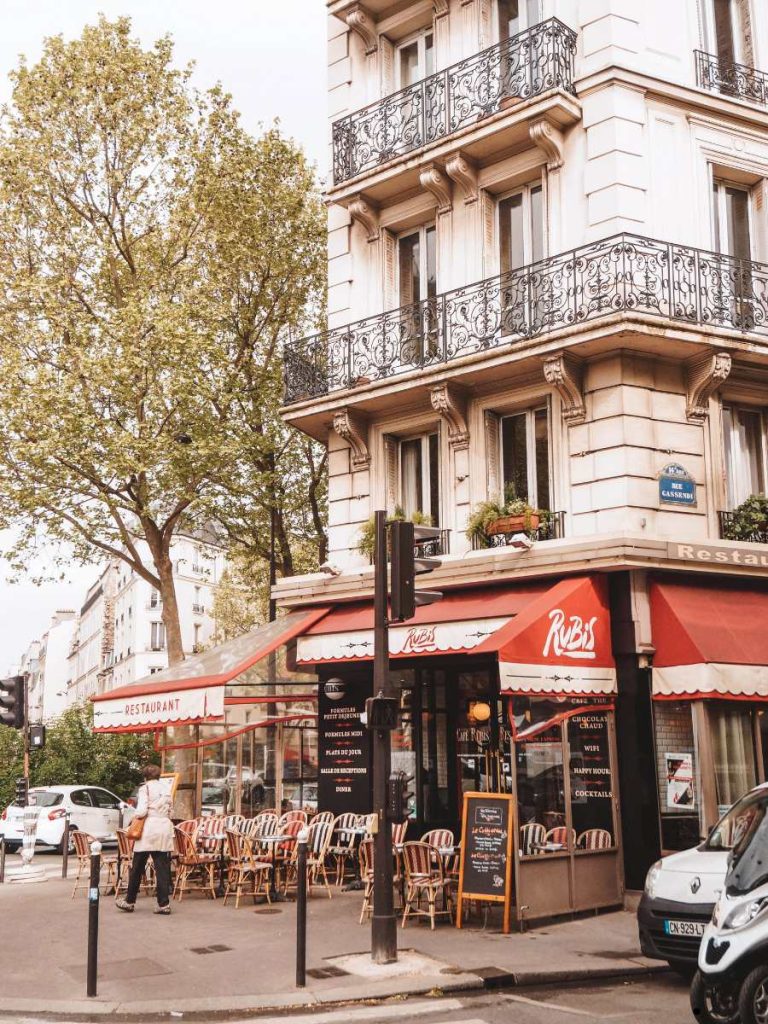
Dining in Paris is an experience to be savored — literally. Unlike in many countries where meals are rushed through in 30 minutes, Parisians take their time. Don’t expect to be in and out of a restaurant quickly. Mealtimes are sacred here, and part of the joy is enjoying the food, the conversation, and the atmosphere at a leisurely pace.
Some key dining etiquette tips:
- Don’t rush: Meals are meant to be enjoyed slowly, especially lunch and dinner. Don’t expect a waiter to bring your check until you ask for it. They aren’t being inattentive; they’re respecting your time.
- Tipping: In Paris, service is usually included in your bill, so tipping is not mandatory. However, if you’ve had excellent service, leaving a small tip of a few euros is appreciated.
- Mind your table manners: Don’t start eating until everyone at the table has been served. Use both your knife and fork (even for simple dishes), and don’t place your hands on your lap during the meal — they should rest on the table.
Dining in Paris is not just about satisfying hunger; it’s about connecting with people, savoring the flavors, and enjoying the moment.
1.3. Language Matters
It’s no secret that many Parisians speak English, especially in tourist areas. However, you’ll have a much better experience if you make an effort to speak some basic French. Parisians appreciate the attempt, even if your pronunciation isn’t perfect.
Here are a few phrases to master:
- Bonjour / Bonsoir (Hello / Good evening)
- S’il vous plaît (Please)
- Merci (Thank you)
- Pardon (Excuse me)
- Où sont les toilettes? (Where are the bathrooms?)
Even if you stumble through these phrases, most Parisians will be more than willing to help you. But if you approach someone and immediately start speaking in English, you may get a less-than-friendly response. Making an effort with the language shows respect for the local culture and will usually lead to more positive interactions.
2. Navigating Parisian Life
2.1. Understanding the Paris Metro System
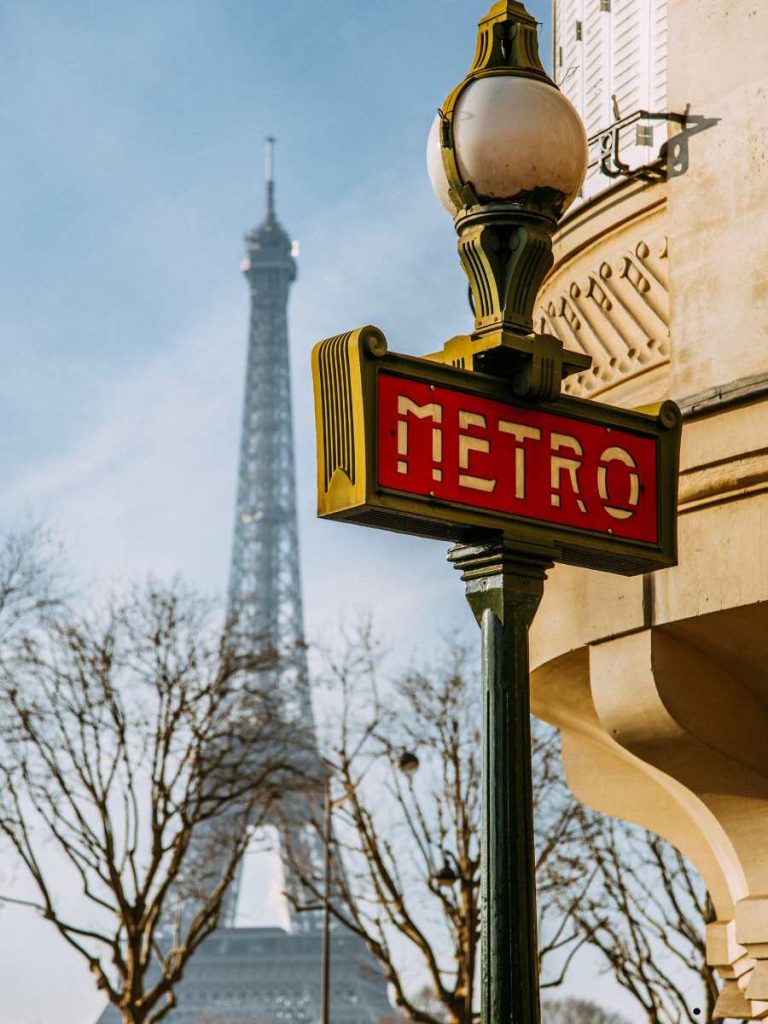
The Paris Metro is both a marvel of efficiency and a bit of a maze for first-timers. With 16 lines covering the entire city, it’s one of the fastest and most convenient ways to get around. However, the sheer size and complexity of the system can be daunting.
Here’s what you need to know:
- Plan ahead: Download a Metro map or use a transit app to familiarize yourself with the system. Paris is divided into zones, but for most tourists, Zones 1-2 are all you’ll need to navigate.
- Avoid rush hour: Paris Metro trains can get extremely crowded during peak times (8:00-10:00 AM and 5:00-7:00 PM). If you can, plan your travel outside of these windows to avoid the crush of commuters.
- Tickets: Buy a carnet (pack) of 10 tickets to save money. Be sure to hold onto your ticket until you exit the station; ticket inspectors are common, and hefty fines are issued if you’re caught without a valid ticket.
The Metro is the lifeblood of Paris, and once you get the hang of it, you’ll find it’s the easiest way to move from one iconic sight to another.
2.2. Know What Areas to Explore
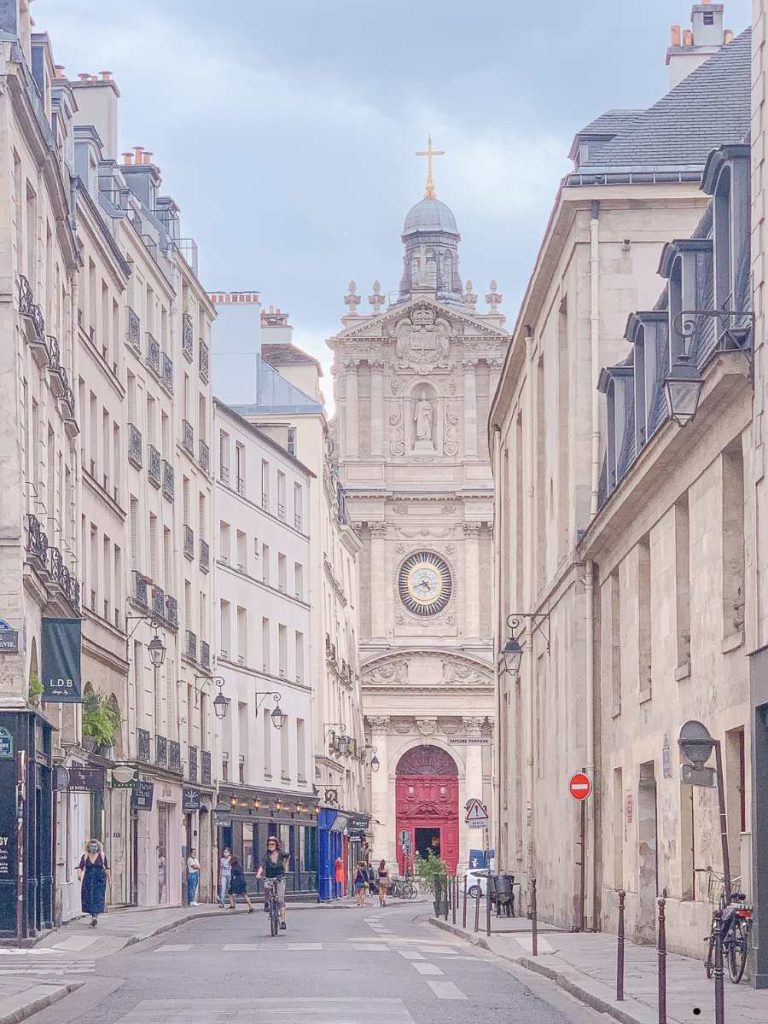
Paris is divided into 20 neighborhoods, or arrondissements, each with its own vibe and character. While most tourists flock to the more famous areas like the 1st (Louvre) or 7th (Eiffel Tower), there’s so much more to discover.
Here’s a breakdown of a few must-see neighborhoods:
- Le Marais (4th arrondissement): A historic area known for its trendy boutiques, art galleries, and vibrant LGBTQ+ scene. It’s also home to the famous Place des Vosges and several excellent museums, like the Musée Picasso.
- Montmartre (18th arrondissement): This bohemian neighborhood, once home to artists like Picasso and Van Gogh, offers stunning views of the city from the steps of the Sacré-Cœur. Wander through its narrow streets, and you’ll find charming cafés, hidden squares, and a distinctly village-like atmosphere.
- Saint-Germain-des-Prés (6th arrondissement): For a taste of intellectual Paris, head to Saint-Germain. This area is filled with iconic cafés like Café de Flore and Les Deux Magots, where famous writers and philosophers once gathered.
Each arrondissement has something unique to offer, so take the time to explore beyond the main tourist spots.
2.3. How to Avoid Tourist Traps
Paris is filled with tourist traps, especially around the most famous attractions. While the Eiffel Tower, Louvre, and Notre-Dame are certainly worth seeing, they’re often overcrowded and overpriced. Instead of following the crowd, consider these alternatives:
- Skip the overpriced meals on the Champs-Élysées: Instead, explore side streets for authentic bistros and cafés where locals dine.
- Avoid the long lines at the Louvre: If you’re an art lover, consider visiting the Musée d’Orsay or the Musée de l’Orangerie, both of which house incredible collections in a more manageable setting.
- Explore Paris by foot: Some of the best experiences in Paris come from simply wandering through its streets and stumbling upon hidden gems. You don’t need a tour guide to enjoy the beauty of Paris’s architecture, gardens, and neighborhoods.
3. Understanding Parisian Tourism Dynamics
3.1. The Myth of the Perfect Parisian Experience
Let’s address the elephant in the room: the idea that your trip to Paris will be a flawless experience filled with romance, magic, and picture-perfect moments. In reality, Paris — like any major city — can be overwhelming, and it won’t always live up to the idealized version we see in movies.
This doesn’t mean Paris isn’t beautiful or special. It just means that if you’re expecting every moment to feel like a scene from Amélie, you might be in for a shock. Paris can be noisy, crowded, and expensive. The weather might not cooperate. You may have to wait in long lines or deal with a language barrier. But understanding this ahead of time will help you appreciate the city for what it is — a vibrant, historic metropolis that’s full of life (with all its ups and downs).
3.2. The Highs and Lows of Visiting the Eiffel Tower
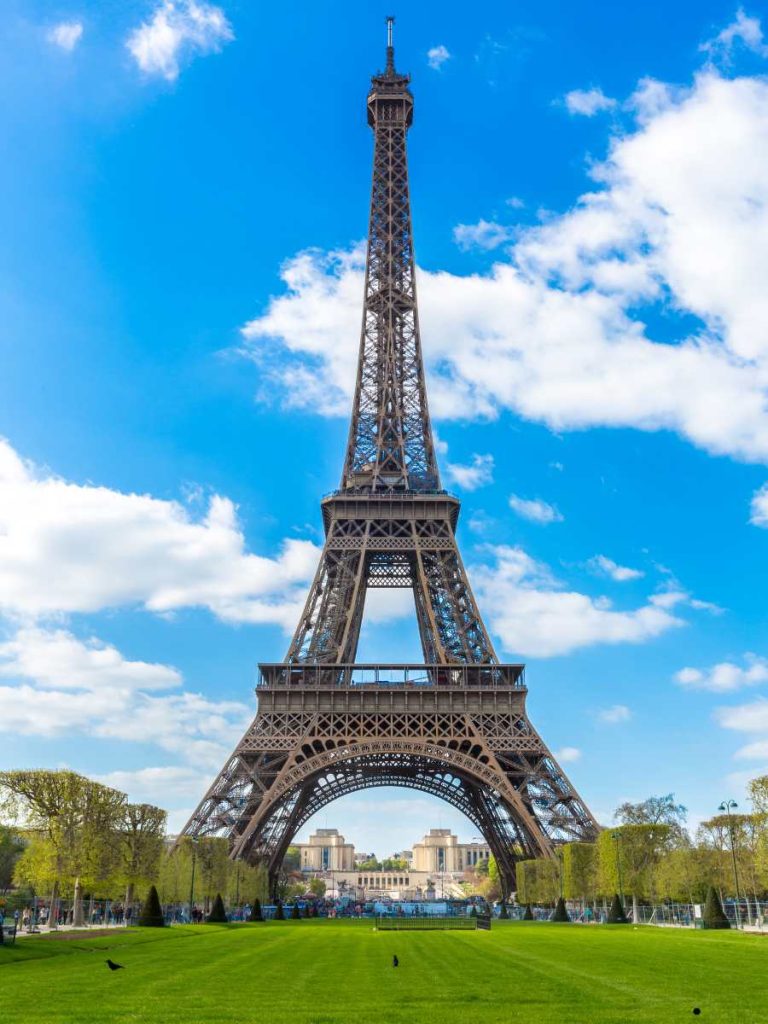
Ah, the Eiffel Tower — the most iconic symbol of Paris. But here’s the thing: while it’s undeniably stunning, visiting the Eiffel Tower can be a frustrating experience if you’re not prepared.
- Expect crowds: No matter when you visit, the Eiffel Tower will be crowded. Whether you’re going up to the observation deck or simply viewing it from the ground, there will be hundreds (if not thousands) of other people around you.
- Plan ahead: If you want to go to the top, book your tickets online in advance to avoid waiting in long lines. Alternatively, consider viewing the Eiffel Tower from Trocadéro Square or the Champ de Mars for a more relaxed experience.
- Beware of pickpockets: The areas around the Eiffel Tower are notorious for pickpockets, especially during peak tourist season. Keep your belongings secure and be aware of your surroundings.
Despite the crowds and potential headaches, the Eiffel Tower is still a must-see — just manage your expectations, and you’ll be able to enjoy it without frustration.
4. Parisian Pace of Life: Adjusting to “Paris Time”
4.1. The Slow and Leisurely Parisian Lifestyle
One of the most surprising things for first-time visitors to Paris is the pace of life. Compared to many other bustling cities, Parisians move at a slower, more deliberate pace — especially when it comes to leisure activities.
- Meals are long and social: As mentioned earlier, dining is a leisurely affair. If you’re used to fast service and quick meals, prepare to slow down and savor your food.
- Shops close early: Many shops in Paris close by 7:00 PM, and most are closed on Sundays (except for a few areas like Le Marais). It’s important to plan your shopping and errands accordingly.
- Sunday is a day of rest: Unlike in some cities where weekends are bustling, Sundays in Paris are relatively quiet. Many businesses are closed, and Parisians use this day to relax, visit family, or stroll through parks.
Adjusting to this slower pace can be refreshing, but it may take some getting used to if you’re coming from a faster-paced city.
5. Safety in Paris: What You Need to Know
5.1. Pickpocketing and Scams
Like any major tourist destination, Paris has its fair share of pickpockets and scammers. The areas around the Eiffel Tower, Notre-Dame, and the Champs-Élysées are particularly notorious for pickpockets who prey on distracted tourists.
To avoid becoming a target:
- Keep your belongings close: Use a crossbody bag that zips up, and keep it in front of you when in crowded areas.
- Be cautious with strangers: Beware of people approaching you with petitions, offering friendship bracelets, or asking for directions. These are often distractions to divert your attention while someone else tries to steal from you.
5.2. Neighborhoods to Be Mindful Of
While most of Paris is safe, there are certain areas where extra caution is advised, especially at night. Neighborhoods like La Chapelle, Barbès, and parts of the 18th arrondissement can feel less secure, particularly after dark.
That said, don’t let fear stop you from exploring. Paris is generally safe for tourists, but like any large city, it’s wise to stay aware of your surroundings, especially in unfamiliar areas.
Conclusion: Embrace the Real Paris
Paris is a city that defies easy description. It’s both enchanting and challenging, romantic and gritty, historical and modern. To truly appreciate Paris, you need to embrace both its beauty and its imperfections. By preparing for the realities of Parisian life — the culture, the crowds, the pace — you’ll be able to enjoy your trip in a more authentic and fulfilling way.
So, go ahead, get lost in the winding streets of Le Marais, linger over a long dinner in a cozy café, and soak up the atmosphere of this incredible city. Paris may not always be the dream you’ve imagined, but that’s part of its charm. It’s a city that’s alive, full of surprises, and waiting for you to discover it on your own terms.

